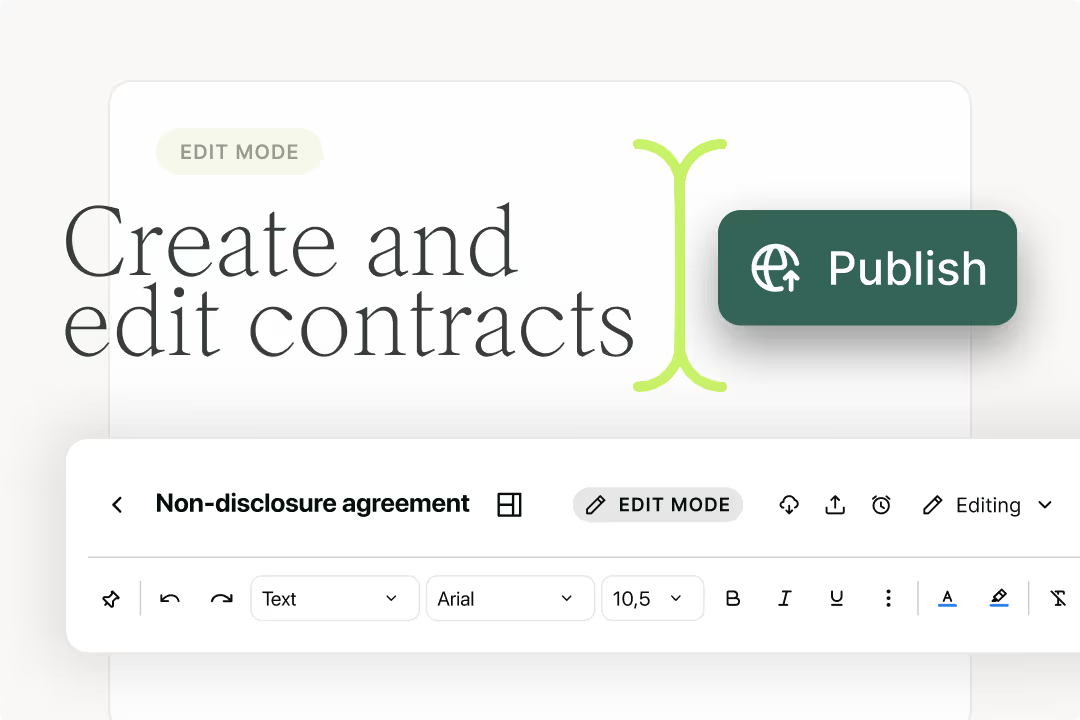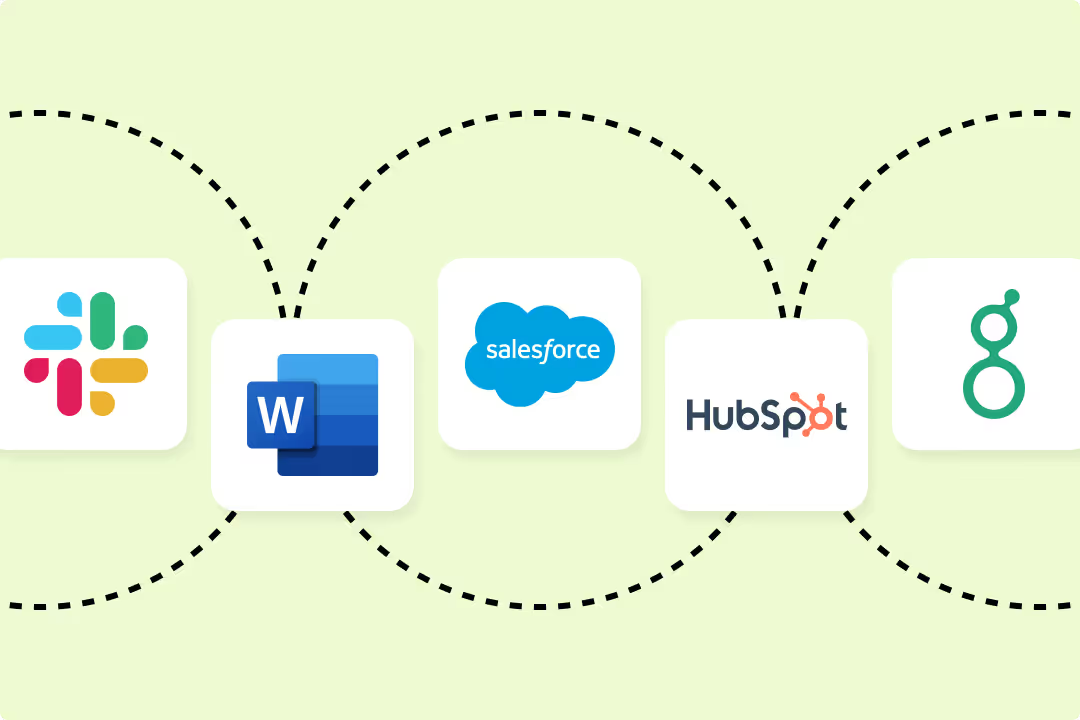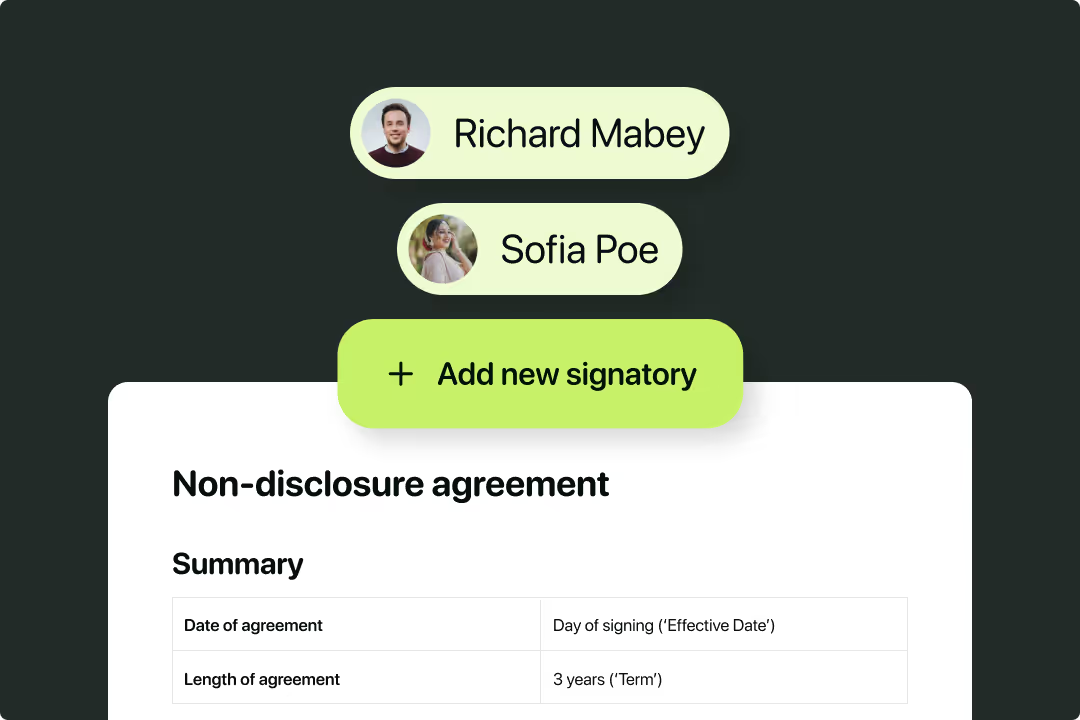Solutions
Customer Support
Resources
Contracts are essential to your company’s growth. But creating new contracts can be a lengthy process, and blockers are common along the way.
Fortunately, businesses can now generate contracts in a way that removes this friction.
But what does it actually mean to ‘generate’ contracts, and how does contract generation work? Find out everything you need to know in this Juro deep-dive.
Contract generation is the process of assembling or automating contracts. It’s one of the first stages of the contract lifecycle, and it typically involves creating and populating a contract before sending it to counterparties for negotiation - and hopefully signing.
Contract generation is a faster and more efficient way to create legal agreements, so it’s often preferred to the manual contract drafting processes that happen in tools like Microsoft Word.

Both contract generation and contract authoring result in the creation of contracts.
However, the main difference between generating and authoring a contract is that authoring describes the process of actually drafting the words contained within a legal agreement. By comparison, contract generation typically involves automating the agreement using a pre-prepared contract template.
Contract generation cuts out the often lengthy process of manually drafting contracts and enables businesses to create contracts quickly and at scale instead.
But if generating contracts doesn’t actually involve writing them, what does it entail? Let us explain.
The contract generation process typically involves several simple steps. We’ll run through these stages now.
Before contracts can be generated, legal first needs to create contract templates that can be used repeatedly and to create contracts at scale. By creating these reusable templates, legal teams are able to retain control over what is and isn’t included in certain types of business contracts.
These templates then enable commercial teams to self-serve on contracts, as they don’t need to complete a contract request form or take the risk of drafting contracts solo.
When using a contract automation tool like Juro, legal teams can even bake fallback clauses and conditions into these contract templates using a feature called conditional logic. This empowers them to set rules within contracts and automate the addition or deletion of certain clauses when specific conditions have been met.

Once finished and approved, these contract templates can then be accessed with ease by the relevant commercial team, making the generation of standardized contracts quick and easy.
When it is eventually time for commercial teams to create contracts, they can then generate them by opening up a contract template and populating it. There are a few ways that users can do this in Juro.
Firstly, they can use the natural language Q&A workflow, which allows both the contract owner and the counterparty to populate the empty smartfields within the contract with the correct information, simply by answering a few questions.
As they complete the Q&A workflow, the contract template is automatically populated with all of the necessary information to complete and customize the contract. This works particularly well for populating DPA templates, NDA templates, and other simple contracts that usually only need to be populated with each party’s details.
{{quote1}}
Alternatively, you can generate contracts by integrating a tool like Juro with another business system. By doing this, you can pull all of the relevant data from the other platform into Juro which auto-populates the contract for you.
For example, if you wanted to populate an employment offer letter template with a candidate’s details, you could use Juro’s integration with Greenhouse. Here’s how that would work:
This removes the need to extract data manually from Greenhouse and input it into the contract template yourself. This can also be done to create contracts using other business systems, like Salesforce, Pipedrive and Workday.

This is just one example of how contract generation software can save businesses tonnes of time during the contracting process.
Lastly, Juro users can generate contracts at scale using Juro. This can be achieved by using Juro’s mass generation feature. We discussed how this can be done in more detail in an earlier post about bulk actions - if you’re interested!
Once the contract template has been fully populated, it’s ready to be sent out for approval and review.
If you’re fortunate enough to use an all-in-one contract tool like Juro, this can all happen in the same workspace that the contracts were generated in. This means no back and forth between Word, email and shared drives to get contracts over the line.
To find out more about how Juro enables all teams to streamline the creation, execution and management of routine contracts at scale, hit the button below.

To recap: we’ve touched briefly on what the contract generation workflow typically looks like with the help of contract generation software, and we’ve also mentioned how much time it can save businesses.
But what are the other benefits of using contract generation software? Let’s see.
One of the biggest advantages of using contract generation software and generating contracts using pre-approved templates is that commercial teams no longer need to wait around for legal to fulfil requests.
In a manual workflow, it would usually be legal teams that are responsible for drafting a contract. However, with pre-approved and automated templates on hand, commercial teams can self-serve on agreements as and when they need them.
By removing this blocker, contracts can progress to the signing stage much faster.
Another benefit of using contract generation software is that it ensures greater consistency when creating contracts.
Without this technology, teams are often left to copy and paste certain clauses from different contract templates into a Word document. As you can imagine, this can create inconsistencies within otherwise standardized contracts, which creates risk.
Contract generation software is also great for improving the accuracy of the data within them, too. In a manual contract workflow, contract owners would need to extract and input contract data themselves, but with contract generation software, this happens automatically. This removes the opportunity for small yet costly mistakes to occur.
{{quote2}}
It’s no secret that creating contracts manually is a drain on legal’s time. For fast-growing businesses with lean legal teams, it’s simply not possible to create as many contracts as you’d like as quickly as you’d like.
Contract generation solves this problem. Contract generation software reduces contract admin and provides users with the opportunity to mass-generate contracts. As a result, it transforms a repetitive contract process into a scalable one that requires less time and fewer resources - helping you grow faster.
We’ve just established why contract generation software is a fantastic opportunity for scaling businesses. But what should they look for if they do decide to invest?
Well, here are a few of the best features for contract generation in 2026:

Juro offers all of these features for contract generation. To find out more about how Juro’s all-in-one contract automation software can help your business to generate contracts and reduce contract admin, fill in the form below.
Lorem ipsum dolor sit amet, consectetur adipiscing elit. Suspendisse varius enim in eros elementum tristique. Duis cursus, mi quis viverra ornare, eros dolor interdum nulla, ut commodo diam libero vitae erat. Aenean faucibus nibh et justo cursus id rutrum lorem imperdiet. Nunc ut sem vitae risus tristique posuere.

